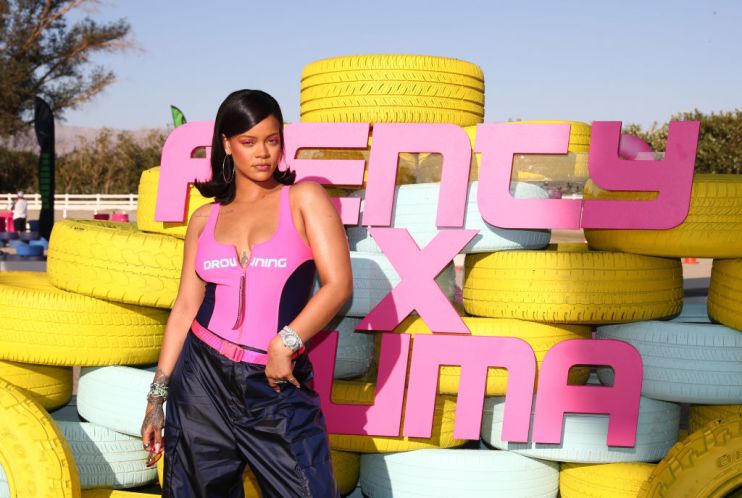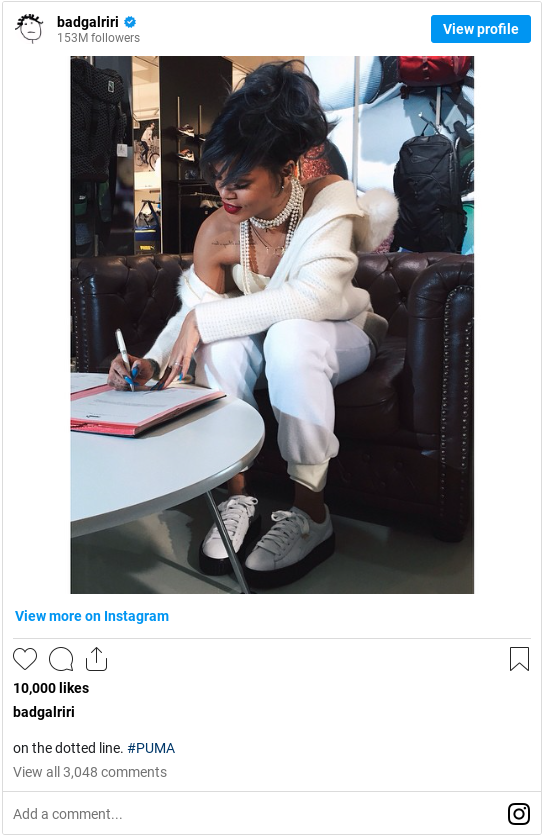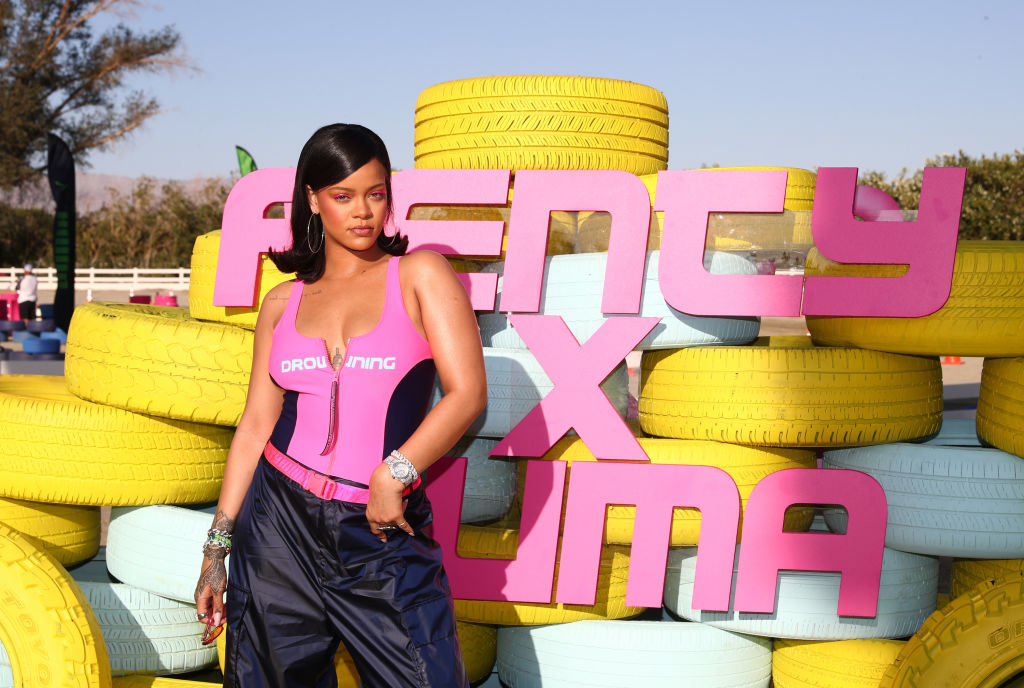
An intellectual property expert explains why pop star Rihanna’s social media posts have caused a headache for sportswear brand Puma.
Celebrities and influencers regularly post online images of themselves modelling products they endorse. This may appear harmless, but rights holders should be careful.
A recent legal ruling shows that an Instagram post made by Rihanna more than a year before Puma filed its EU registered design application was capable of invalidating it.
In July 2019 Handelsmaatschappik K Van Hilst BVn (HJVH) applied to the European Union Intellectual Property Office (EUIPO) seeking a declaration of invalidity in respect of Puma’s registered design.
HJVH relied on various photographs shown on Rihanna’s Instagram account dating back to December 2014 which related to the pop star’s appointment as creative director at the sportswear brand. The images showed Rihanna wearing a pair of Puma trainers reproducing the design in question.
HJVH argued that Rihanna’s postings had been published more than 12 months before the date of the application for the design.
The timing is of critical importance to this case. A disclosure within the 12-month window would normally be permissible and not novelty-defeating as the IP regime recognises that businesses will often need to disclose their designs and inventions to test commercial interest in their product before proceeding with design registrations.
However, this grace period is limited to 12 months from the point at which the design is first disclosed. Any disclosures before the 12-month grace period could be used to claim the design in question lacks individual character, and therefore should not be registered.

In this case, HJVH argued before the EUIPO that the Instagram posts defeated the individual character of the design, and that the designs should therefore be declared invalid and removed from the register.
In March 2021, the EUIPO found in favour of HJVH and declared the design invalid. However, days later Puma appealed the decision on two grounds, both of which were rejected by the General Court.
It was held that the postings on Instagram could have been known “in the normal course of business to the circles specialised in the sector concerned” and as such could be relied upon as part of HJVH’s invalidity attack.
Business owners and designers should pay close attention to this decision. A key takeaway is the importance of keeping records of the date when a design is first revealed to the public, whether that be via social media post, news article, launch event or even a trade show.
Once the design is in the public domain they should look towards filing an application for the design and ensure that any application is filed well within the 12-month grace period. By taking these steps they are future-proofing against the situation presented in this case.
Crucially, when brands decide to use celebrity influencers, they should be mindful of the potential issues that can arise if an element of control is not retained over online postings.
Lucy Marlow is an Intellectual Property Partner at law firm JMW Solicitors in London.




